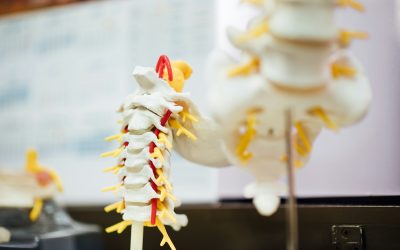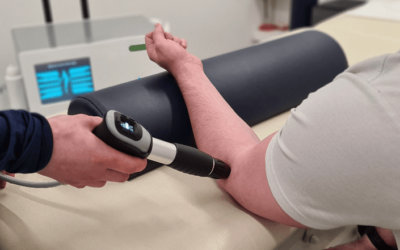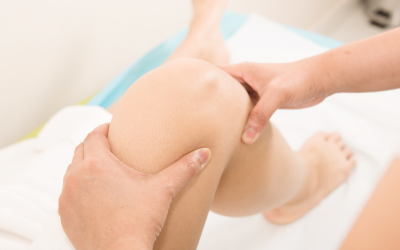At our injury clinics, all our new clients receive an initial consultation with one of our highly-trained specialists who will undertake a brief physical assessment.
From here, a relevant treatment plan will be discussed and each client will receive an explanation on how to continue. If further advice or treatment is required, the clinician will call you to check on your progress. If you continue to improve without ‘hands-on’ intervention, further advice can be given.
If you feel that further ‘hands-on’ intervention is needed, then an appointment will be made for a more detailed consultation, where one of our skilled clinicians will conduct a thorough physical assessment. Then, using Summit’s education board, we will explain why the condition has occurred, allowing you to understand the cause of your pain/problem.
As part of your physical assessment, a full musculoskeletal screening will be completed. This is a comprehensive muscle balance testing process which identifies tight, weak, overactive or underactive muscles.
Next, a relevant, evidence-based, up-to-date and individualised treatment plan can be agreed and implemented.
All treatment at Summit is ‘hands on’ treatment (manual and massage therapy techniques including mobilisation and manipulation of tissues and joints).
You will be given a home exercise programme (HEP) at the end of the session, in conjunction with your treatment, enabling you to maximise the benefits of your treatment and, allowing you to self-manage your symptoms where possible. This process is designed to minimise the amount of treatment you will require.
what to expect
further information about visiting us for an injury clinic consultation, from what we treat to what you should expect and how to prepare can be found below.
what INJURY PREVENTION helps
All summit clinicians are trained in treating a plethora of conditions some of which include:
Ankle Pain
Shoulder Injuries
Knee Injuries
ACL Injuries
Sports Related Injuries
AC Joint Dislocations
Groin Injuries
& Many More
How to prepare for a session
Aside from a positive attitude, you should bring the following items to one of our physiotherapy sessions:
Suitable Clothing
e.g; Shorts, Strappy top, Sportswear etc.
Glasses
(if you require them to read forms)
Medical History
Please remember to inform us of any prior or ongoing medical problems that you have even if you think they seem unrelated to the pain you are seeking treatment for.
our aim here at summit is to keep our clients relaxed, and for them to enjoy their time with us. out staff are friendly and more than happy to answer any questions you may have on your condition and treatment.
Each new client/condition will have an initial consultation where one of our skilled clinicians will take a detailed and confidential history and physical assessment. Then, using Summit’s education board, we will explain why the condition has occurred, allowing you to properly understand the cause of your pain/problem.
From here a relevant, evidence-based and up-to-date treatment plan can be put into action.
You will be given a home exercise programme (HEP) at the end of the session, in conjunction with your treatment. Not only will this maximise the benefits of the treatment and, it will allow you to self-manage your symptoms where possible.
Summit also promotes positive lifestyle behaviours by teaching individuals to self-manage their condition, which improves confidence, sense of wellbeing and quality of life.
With these new acquired skills, we can give you a long-term solution so you can prevent reoccurrence of your condition and return to activity with confidence.
Summit physiotherapy is committed to its clients and expects commitment from them in return. All of our clients must realise that their rehabilitation and recovery requires a team effort.
Above all, we are here to help you get better and give you the confidence to embrace the treatment. A happy client means a quicker recovery, and that’s what we provide here at Summit.
ready to book an appointment?
It’s never been easier to book a session with us, just click below and choose what type of appointment, which clinic and which physiotherapists you’d like.
CHECK OUT SOME OF OUR LATEST BLOGS
How Physiotherapy Offers Relief for Headaches and Migraines
Chronic headaches and migraines can be a common daily issue for people. Here, we look at their musculoskeletal causes and how we can help relieve that pain.
What is the difference between a Sports Rehabilitator and a Physiotherapist?
In the UK, both Sports Rehabilitators and Physiotherapists play crucial roles in injury management and rehabilitation within the field of sports and beyond.
A Beginners Guide to Injury Prevention: Safely Increasing Activity Levels
Injury prevention is becoming an increasingly popular addition to peoples training schedules. With “prevention is better than cure” commonly put into practice.
Tackling Common Football Injuries: Strategies for Prevention
Football, a widely adored sport, can include risk of injuries. From minor strains to severe ligament tears, players can face various challenges.
Unveiling the Power of Shockwave Therapy: A Revolutionary Physiotherapy Modality
Shockwave therapy stimulates the body’s natural healing process, and is increasing in popularity to treat tendonitis, plantar fasciitis, and chronic pain.
Physiotherapy: Uncovering the Surprising Benefits
There are many benefits to having physiotherapy, some of which are obvious and some of which may be a surprise. Here, we delve into and discuss those benefits.
The Power of Soft Tissue Mobilisation in Physiotherapy
By following injury prevention strategies and guidelines, rugby players can minimise injury risk and enjoy the sport safely and effectively for years to come.
Joint Mobilisation: Beyond Stiffness – How Joint Mobilisation Transforms Range of Motion
Joint mobilisation, a technique employed by healthcare professionals, has long been associated with addressing stiffness and improving joint flexibility.
Training for a Marathon: 8 what NOT to do’s
By adapting your marathon training program to fit your lifestyle and setting realistic training goals, you can enhance your training experience, improve consistency, and increase your chances of success on race day.
Wrightington
Wrightington Hotel
& Country Club,
Wigan,
WN6 9PB
Chorley
David Lloyd Health Club,
Moss Lane,
PR6 8AB
get in touch...
Our network of clinics is based in Lancashire & Greater manchester and is run by our team of dedicated practitioners.
The address details for each clinic are listed below for appointments, for general enquiries or anything you'd like to know prior to booking, please use the contact form or email us and we'll be in touch ASAP!
Alternatively, we can be reached on
SUMMIT MANCHESTER
Urban Reform, 106 Temperance Street, Piccadilly, Manchester, M12 6HR
SUMMIT WRIGHTINGTON
Wrightington Hotel & Country Club, Wigan, WN6 9PB
SUMMIT CHORLEY
David Lloyd Health Club, Moss Lane, PR6 8AB








